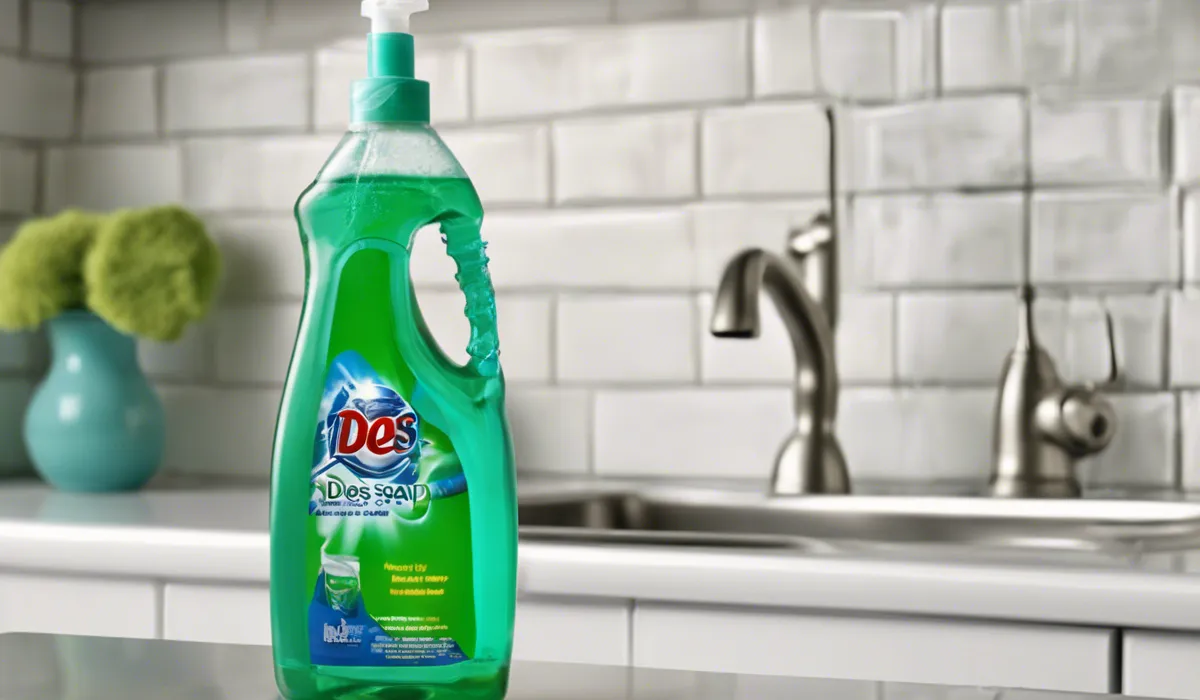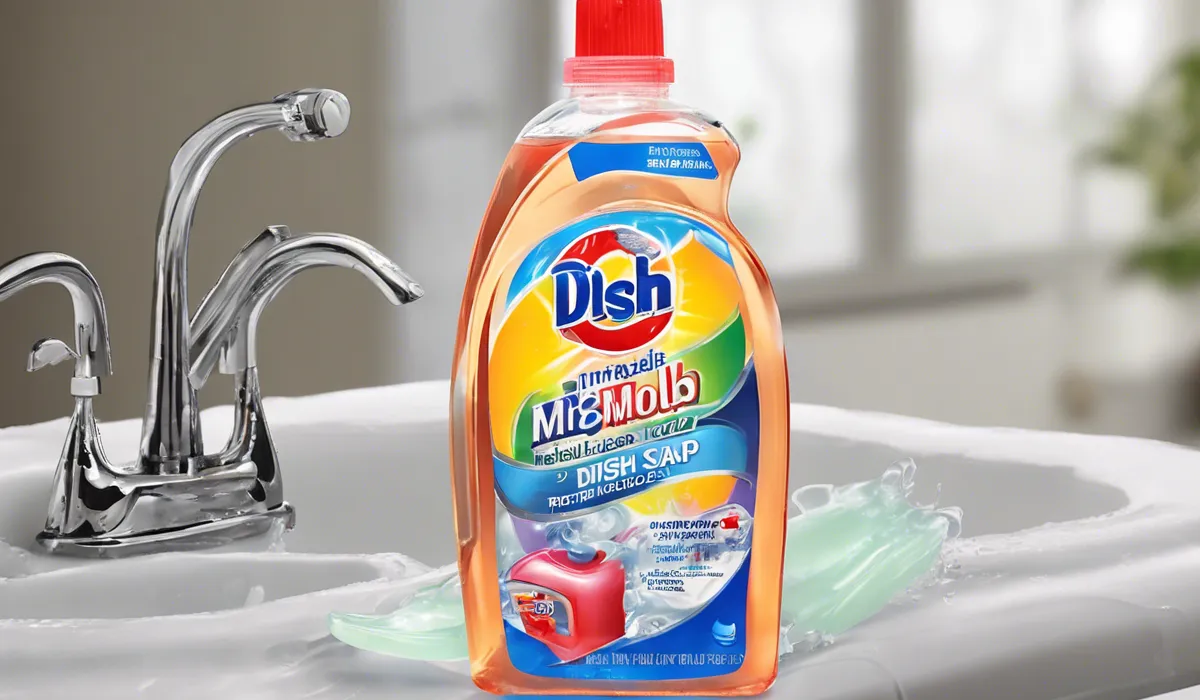Dish soap can remove mold from surfaces by breaking down oils that hold mold together, but it doesn’t kill mold spores. For effective mold elimination, use a solution of bleach and water or specialized mold-killing products.
Efficacy of Dish Soap Against Mold

Understanding Mold and Its Impact on Homes
Mold is a type of fungus that grows in damp environments. It reproduces by releasing tiny spores into the air.
When these spores land on moist surfaces, they grow into new mold colonies. Mold can cause damage to your home, eating away at materials like wood and drywall.
It can also affect your health, causing allergies, and respiratory issues. This is why getting rid of mold is so important.
What Makes Up Dish Soap?
Dish soap is designed to cut through grease and food residue on dishes. Its main ingredients include surfactants, which reduce surface tension and allow the soap to spread and penetrate dirt, and solvents, which dissolve substances.
These ingredients make dish soap a tool for cleaning, but not necessarily for killing mold spores.
How Dish Soap Interacts with Surfaces?
Dish soap works by surrounding dirt and oil on a surface, making it easier to wipe away. The surfactants in dish soap can help remove the oily layer that holds mold onto surfaces, pulling the mold away when you scrub and rinse the area.
Can Dish Soap Kill Mold?
While dish soap can help remove mold from surfaces, it does not kill mold spores. Spores can remain dormant and reactivate if conditions become damp again.
Comparing Dish Soap to Other Mold Killers
Compared to agents like bleach or vinegar, which can kill mold spores, dish soap is less effective.
Bleach, for instance, can kill and decolorize mold, making it a stronger choice for mold elimination.
The Role of Surfactants in Mold Removal
The surfactants in dish soap can help in removing mold from surfaces by breaking down the oils. However, they do not have the properties needed to kill mold spores.
Limits of Dish Soap for Mold Spores
Dish soap’s limitation lies in its inability to kill mold spores. It can clean visible mold but cannot ensure that the spores are eradicated, which is necessary to prevent mold from returning.
How to Use Dish Soap to Combat Mold?

Preparing to Clean Mold with Dish Soap
Before using dish soap to clean mold, you must prepare the area. Wear protective gloves and a mask, and ensure the space is well-ventilated.
Mixing Dish Soap for Mold Cleaning
For cleaning mold with dish soap, mix it with water. You can also add baking soda to the mixture to increase its cleaning power.
Applying Dish Soap to Moldy Areas
Apply the dish soap solution to the moldy surface using a sponge or brush. Scrub thoroughly to remove the mold. After cleaning, rinse the area and let it dry completely.
Safety Measures During Mold Removal
It is crucial to wear protective gear to avoid inhaling mold spores. Keep the area ventilated and avoid mixing dish soap with bleach as this can create harmful fumes.
Preventing Mold After Cleaning
After cleaning with dish soap, keep the area dry and clean to prevent mold from returning. Regular maintenance is key.
Alternatives and Complementary Measures in Mold Remediation

Exploring Alternative Mold Killers
Several alternatives to dish soap can kill mold more effectively. These include commercial mold removers, which are designed specifically for this purpose, and natural options like vinegar, which can kill mold and spores.
Natural Mold-Killing Solutions
Natural alternatives for mold removal include vinegar, which can kill both mold and spores, tea tree oil, which is a natural fungicide, and baking soda, which can clean and deodorize moldy areas.
Addressing the Root Cause of Mold
It is important to address the root cause of mold, which is typically excess moisture. Fix leaks, dry wet areas immediately, and use dehumidifiers to keep humidity levels in check.
Long-Term Mold Prevention Strategies
Long-term prevention of mold includes controlling humidity, ensuring good ventilation, and maintaining a regular cleaning schedule. These measures can help keep mold at bay.
FAQs About Dish Soap and Mold
Does dish soap kill mold?
No, dish soap does not kill mold. It can help remove mold from surfaces by breaking down the oils that hold mold together, but it won’t eradicate mold spores.
Can I use dish soap to clean mold off surfaces?
Yes, you can use dish soap to clean mold off surfaces as it can help in breaking down the structure of mold, but it should be followed by a proper disinfection method to kill the spores.
What should I use to kill mold spores after cleaning with dish soap?
To kill mold spores after cleaning with dish soap, use a solution of bleach and water or commercial mold-killing products.
Is dish soap effective in preventing mold growth?
Dish soap is not effective in preventing mold growth as it does not kill mold spores; it merely helps remove existing mold from surfaces.
What is the best way to eliminate mold completely?
The best way to eliminate mold completely is to use a mixture of bleach and water or specialized mold-killing products designed to kill mold spores.
Final Thoughts
While dish soap can help remove mold from surfaces by breaking down the oils that bind mold together, it is not effective at killing mold spores.
To thoroughly eliminate mold, it is recommended to use a bleach and water solution or professional mold-killing products that are designed to eradicate mold spores on contact.
